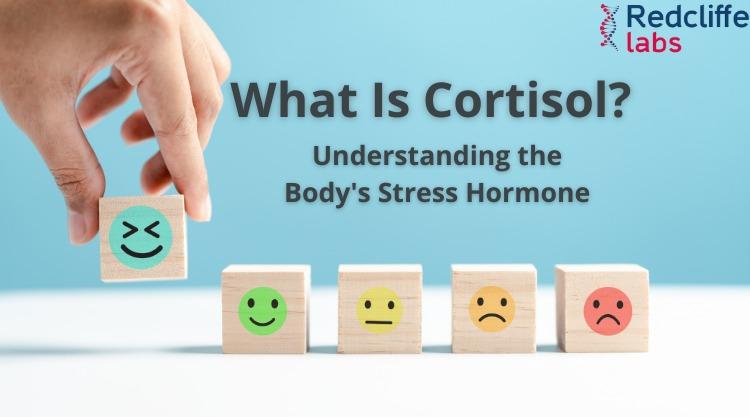What Are The Benefits of Eating Sunflower Seeds?

Medically Reviewed By
Dr. Geetanjali Gupta
Written By Muskan Taneja
on Nov 11, 2024
Last Edit Made By Muskan Taneja
on Jul 19, 2025

The sunflower is a beautiful flower that elevates the surrounding area. Its fragrance, aura, and devastating nature catch the eye of everyone. But we bet you aren’t aware that sunflower seeds hold tremendous value.
Sunflower seeds are small, black, and edible, providing several health benefits. Eating sunflower seeds benefits both males and females by delivering essential nutrients to both males and females. Today, let’s understand sunflower seeds' benefits, side effects, and nutritional value.
Know About Sunflower Seeds and Its Nutritional Value
Sunflower seeds are derived from sunflowers, scientifically known as Helianthus annuus. Experts say that sunflower seeds are full of nutrition.
A question that arises among people is, ‘Are sunflower seeds good for you?’ Yes, studies reveal that sunflower seeds benefit the body by providing vitamins, healthy fats, minerals, and other essential nutrients.
Sunflower seeds have a unique and nutty texture that you can use for various culinary purposes. Eating sunflower seeds benefits the overall health of men and women. The nutrition content in sunflower seeds contributes to your daily nutrient intake.
Nutritional Value of Sunflower Seeds
A small serving of sunflower seeds provides nutrients from carbohydrates to minerals. Here is a breakdown of the nutritional value of sunflower seeds.
|
Nutrient |
Value per 30 grams |
|
Calories |
165 |
|
Total carbohydrate |
7g |
|
Fibre |
3g |
|
Sugar |
1g |
|
Protein |
5.5g |
|
Total Fat |
14g |
|
Saturated Fat |
1.5g |
|
Monounsaturated Fat |
3g |
|
Polyunsaturated Fat |
9g |
|
Cholesterol |
0mg |
|
Sodium |
1mg |
|
Iron |
1 mg |
|
Vitamin E |
7.5mg |
|
Zinc |
1.5mg |
|
Folate |
67 mcg |
|
Selenium |
22.5mcg |
9 Health Benefits of Sunflower Seeds
The nutrients in sunflower seeds can help lower blood pressure, sugar, and cholesterol levels. Studies found that this nutritional content supports a healthy and strong metabolism, immune system, and healthy heart. Here are the 9 health benefits of sunflower seeds.
-
Maintain Heart Health
Heart disease can lead to heart attack or stroke. Studies have found that sunflower seeds' nutrient content can lower the risk of heart disease.
High blood pressure, sugar, and cholesterol levels are the main causes of heart disease. Studies have found that sunflower seeds benefit in lowering cholesterol and blood pressure levels. They can lower the risk of heart diseases such as stroke and heart attack by 15%.
-
Boost Energy
Eating sunflower seeds benefits from maintaining your body’s energy levels. Consume 30g of sunflower seeds daily to boost energy, build your immune system, and have a strong digestive system. It is a quick, tiny, and tasty snack for a quick energy boost.
-
Support the Immune System
Minerals such as zinc and selenium are important for a strong immune system. Sunflower seeds contain these essential minerals, which help in the growth and development of your immune system. The antioxidants and anti-inflammatory properties can also enhance your immune system’s response.
-
Reduce Swelling or Inflammation
Sunflower seeds can reduce inflammation or swelling because of their vitamin E and anti-inflammatory properties. Studies say that sunflower seeds benefit people suffering from chronic inflammation. Add sunflower seeds to your diet if you have swelling or inflammation in the joint areas. It can provide you relief from such health conditions.
-
Lower Blood Pressure Levels
Sunflower Seeds contain unsaturated fatty acids, such as linoleic acid, which lower blood pressure. They also benefit males and females by lowering cholesterol levels.
Experts say that the magnesium content can also lower blood pressure levels. They conducted a three-week study in which women with diabetes ate 30 grams of sunflower seeds, which helped lower 5% of blood pressure levels.
-
Reduce ‘LDL’ Cholesterol
Studies found that people with diabetes saw a decrease in LDL (bad) cholesterol by 9-12% after eating sunflower seeds daily.
A study found that sunflower seeds may help reduce weight and maintain BMI, total cholesterol, LDL, and triglycerides levels.
-
Limit The Risks of Cancer
Sunflower seeds have anticancer and anti-inflammatory properties that help you prevent or reduce cancer risks. The nutrients in sunflower seeds benefit from keeping cells intact and preventing damage. Add sunflower seeds to your meals and take care of your health.
-
Manage Diabetes
Sunflower seeds benefit by maintaining sugar levels and lowering the risks of type 2 diabetes. Studies found that daily consumption of sunflower seeds may reduce sugar levels by 10% compared to people eating a healthy diet.
Another study found that eating sunflower seeds lowers carbs and strengthens absorption power. However, more research is needed.
-
Improve Skin
Sunflower seeds benefit the skin in several ways. Their vitamin E content is beneficial for skin health. Vitamin E provides a shield to your skin cells from damage. It also helps improve skin texture and the appearance of sunflower seeds in your daily diet if needed. If you want a solution to boost your skin h diet.

How to eat Sunflower Seeds?
Sunflower seeds have a nutty and flavorful texture. It is a versatile food item you can add to various food items. The nutrients in sunflower seeds benefit skin and hair health. There are many ways you can eat it. However, eating raw sunflower tops it all.
Sunflower seeds can be powdered and added to smoothies, yogurt, and oatmeal. Their nutty texture is good when mixed with pasta or curries.
Sunflower seeds butter is another good source of food. You can make one at home by blending sunflower seeds with sugar and sea salt. Spread it over bread and enjoy.
Side-Effects of Sunflower Seeds
Sunflower seeds benefit your overall growth, yet you should remember their potential side effects. There are no major side effects, yet overconsumption of sunflower seeds can cause side effects. How many sunflower seeds should you eat in a day? Experts say the recommended daily intake of sunflower seeds is 15-30 grams, i.e., 1-2 tablespoons.
Digestive Problems
Sunflower seeds can cause digestive issues like diarrhea, constipation, bloating, gas, stomachache, nausea, and vomiting. Remember to avoid over-eating of sunflower seeds. Also, get yourself tested if you have any allergies to sunflower seeds.
Unnecessary Weight Gain
Sunflower seeds contain 165 grams of calories. So, be mindful of their consumption, as overeating may contribute to unhealthy weight gain.
Allergy
Allergies to sunflower seeds are rare, yet you should take consultation and check with the allergy. Allergies can cause vomiting, anaphylaxis, itching, fever, skin rashes, asthma, mouth inflammation, and lesions.

Key Takeaways
Sunflower seeds are a delicious, nutty, and nutritious snack food. You can have them in raw or powdered form. Garnish the seeds with your daily meal or add powder to a smoothie. The right sunflower seed proportion is 30 grams. Adding them to your daily diet can provide many health benefits. However, overconsumption may lead to reactions such as irregular bowel movements, sprouted seeds, and allergic reactions.
Leave a comment
3 Comments
Amit Anilrao ﹰAshtakar
Dec 26, 2024 at 4:23 PM.
Best information for health benefits
Myhealth Team
Dec 30, 2024 at 11:49 AM.
Thankyou! We are glad you have liked the information.
Pradip dasgupta
Nov 16, 2024 at 2:24 PM.
Is it beneficial for hypertension
Myhealth Team
Nov 21, 2024 at 12:25 PM.
Yes, sunflower seeds can be beneficial for managing hypertension. They are a good source of magnesium, which helps relax blood vessels and regulate blood pressure. Sunflower seeds are also rich in healthy fats (monounsaturated and polyunsaturated fats), fiber, and antioxidants that promote heart health.
Sarma
Nov 14, 2024 at 1:25 AM.
Can we take small quantity ie., half spoon in our daily lunch
Myhealth Team
Nov 15, 2024 at 6:10 AM.
Yes, consuming a small quantity, such as half a spoon of sunflower seeds daily with lunch, can be beneficial. Sunflower seeds are rich in healthy fats, protein, and essential vitamins like Vitamin E. They can support heart health, provide antioxidants, and help improve skin health. However, it's important to maintain moderation due to their calorie content.



